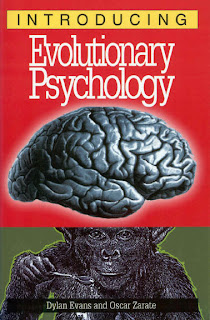
Introducing Evolutionary Psychology, by Dylan Evans and Oscar Zarate, is a required reading for Keanu Reeves, the actor of Neo in the Matrix Trilogy, before he opened up the script. It is a book with illustrations on every page; reading it is fun.
Evolutionary Psychology (EP) is the discipline that explains the mental processes, the cause of human behaviors, in the light of the idea that these mental processes are adaptations of the environment human ancestors live 100,000 years ago. It combines cognitive psychology and evolutionary biology. From cognitive psychology, it adopts the idea that human behaviors are caused by mental processes and the idea that the mind is a computer, by which the cognitive psychologists mean a set of operations for processing information. From evolutionary biology, it adopts the idea of evolution and extends evolution to the formation of human mind.
Evolutionary psychologists call the special-purpose programs in human mind, modules, which collectively constitute the mind. Examples of these special purpose programs include vision, hearing, and memory. Other interesting examples, which are usually controversial, include language acquisition module, alliance-formation module and mate selection module. It is fascinating to learn enlightening ideas that our mind is preprogrammed to learn language and that logic is a byproduct of the cheat-detecting function of the mind. But it is a bit sad to learn that nepotism is a phenomenon due to human nature.
At the end of the book, the author warns that EP does not justify status quo: it "describes what human nature is -- it does not prescribe what human should do". Knowing what human nature is will, on the one hand, help us "know ourselves" better so as to make improvements, and, on the other hand, help us understand the fallible nature of human being so as to be tolerant to each other's faults.

No comments:
Post a Comment